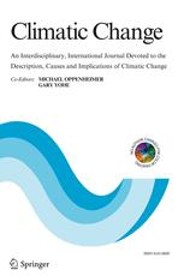Paper published in Journal of Climate
- December 12, 2021
- Abstracts
- Understanding the systematic characteristics of tropical cyclones (TCs) represented in global climate models (GCMs) is important for reliable climate change impact assessments. The atmospheric GCM (AGCM) and ocean wave models were coupled by incorporating the wave-dependent momentum flux. Systematic impacts of wave-dependent momentum flux on TC characteristics were estimated by analyzing 100 historical TCs that occurred in the western North Pacific Ocean. Wave-dependent momentum flux parameterization considering wind and wave direction misalignment was used for assessing the wave–atmosphere interaction. The larger the wave age and misalignment are, the larger the drag coefficient is. The drag coefficient at the left-hand side of the TC was enhanced by the wave condition. It was found that the wave-dependent momentum flux did not have any impact on peak TC intensity. On the other hand, the wave-dependent momentum flux showed a significant impact on TC development during the early development stage. Although systematic differences in TC intensity at most developed stages were not detected, systematic differences in TC tracks between experiments were observed. The TC tracks of the wave-coupled AGCM tend to pass in a relatively eastward direction in comparison with those from the uncoupled AGCM. This is because the wave-dependent momentum flux in the coupled AGCM altered the environmental steering flow and the smaller beta effect of smaller TC at the early developing stage. Systematic differences in TC tracks have significant impacts on climate change assessments, such as extreme sea level changes in coastal regions due to climate change.
- Manuscript
- Shimura, T., N. Mori, D. Urano, T. Takemi, R. Mizuta (2021) Tropical cyclone characteristics represented by the ocean wave coupled atmospheric global climate model incorporating wave-dependent momentum Flux, Journal of Climate, pp.1-46.
https://doi.org/10.1175/JCLI-D-21-0362.1
- Shimura, T., N. Mori, D. Urano, T. Takemi, R. Mizuta (2021) Tropical cyclone characteristics represented by the ocean wave coupled atmospheric global climate model incorporating wave-dependent momentum Flux, Journal of Climate, pp.1-46.

